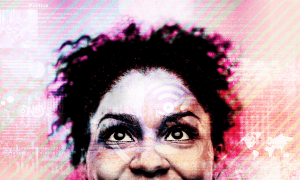Media stories about the state of public education abound. So how do we make decisions and engage in critical conversations about the future of our public schools and society? We must be discerning about the information around us. Thinking about what information is provided, the source, why a story is developed, and whose perspective is represented and whose is missing can be valuable in evaluating accuracy and reliability and in understanding the intent behind media information.
Today more than ever before, we have access to a wide range of information from a variety of media sources, most notably online digital platforms, television, radio and print materials. However, the benefits of increased exposure to information and ideas are undermined by a media landscape that is filled with polarized messaging, manipulated content, disinformation and propaganda. Rhetoric and catchphrases — especially about complex and divisive issues — are abundant and often attempt to reduce complex concerns to simplified and biased explanations. Disinformation threatens our democracy.
Exercising critical thinking, being informed, and engaging with reliable information are important steps for resisting disinformation. This featured resource includes media literacy recommendations for evaluating accuracy and reliability, ideas for reflection and action, and links to resources for understanding media literacy.





